From handshakes to buffets, these 20 things could become obsolete after the coronavirus pandemic
Zoë Ettinger

- The coronavirus pandemic is forcing both individuals and organizations to rethink practices that could potentially spread disease.
- In April, Dr. Anthony Fauci suggested that Americans should never shake hands again.
- Regulations currently prohibit buffet-style restaurant service, and it remains unclear if it will return.
The coronavirus has impacted nearly every aspect of American life, and many changes are likely to continue far into the future.
Shaking hands, once a way to greet new friends or colleagues, may no longer be viewed as a safe practice, as it has the potential to spread bacteria from one person to another.
Similarly, buffets, in which hundreds of hands touch the same utensils over open food containers, now seem more like Petri dishes than a nice place to have dinner.
Take a look at all the things that might be obsolete after the coronavirus pandemic.
Read the original article on InsiderDr. Anthony Fauci stated that shaking hands should be a thing of the past, as it helps "transmit a respiratory-borne illness."
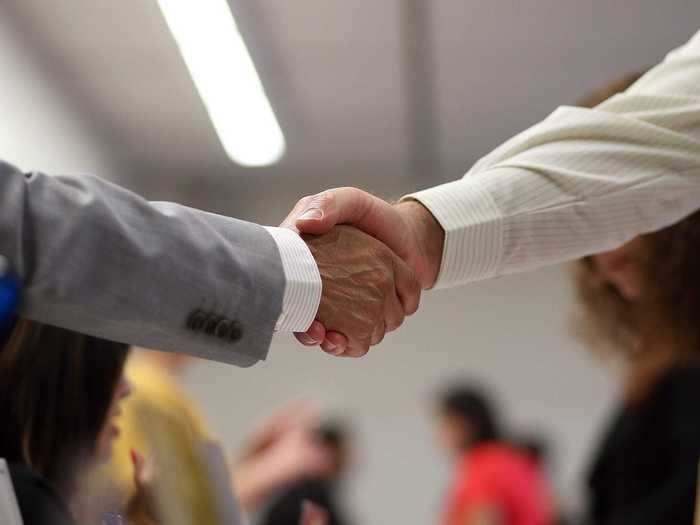
In April, Dr. Fauci said, "As a society, just forget about shaking hands. We don't need to shake hands. We've got to break that custom."
The FDA recommended that buffets and salad bars be discontinued while the coronavirus remains a threat, and it is unclear when they will return.

Many buffet and salad bar restaurants have closed in the wake of the pandemic. Salad bar chain, Sweet Tomatoes, recently shuttered all 97 of its locations nationwide due to its inability to continue operations during the pandemic.
Free samples at stores, like Costco, have been banned. It remains unclear when and if they will come back.
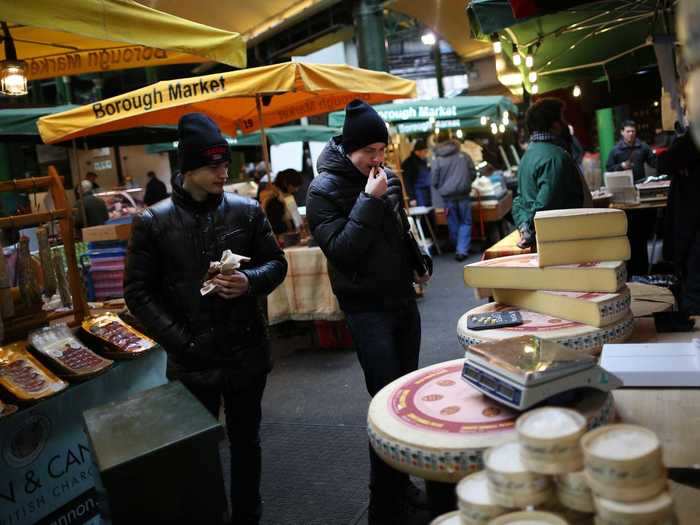
On March 6, USA Today reported that "Costco stores in California, Washington state and Florida said they did not know when Costco would begin offering free food samples again."
Public touch screens can become hotbeds for bacteria when hundreds or thousands of hands use them each day.
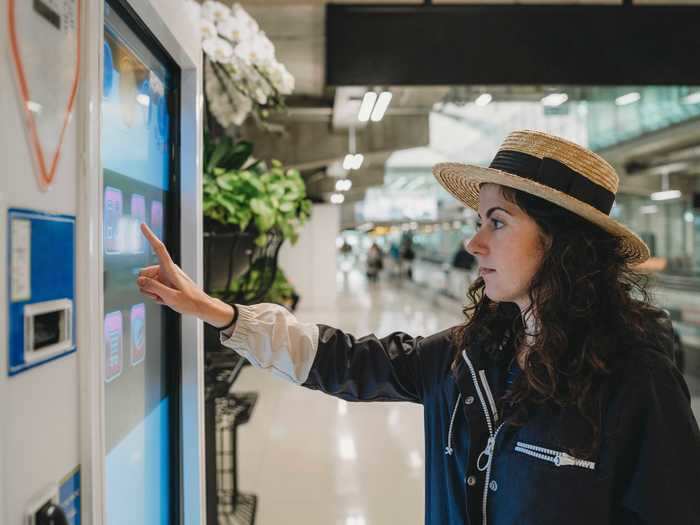
Previous investigations have found touch screens, like those found in fast-food restaurants, have bacteria on their surfaces.
Many states have banned reusable grocery bags at grocery stores in an effort to keep essential workers safe.
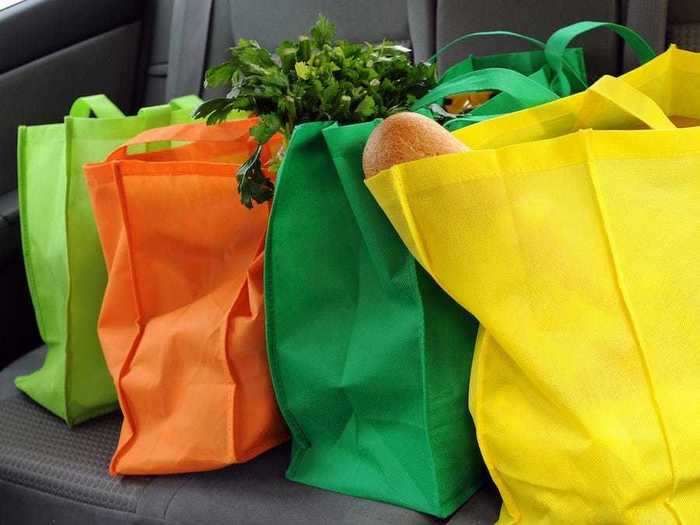
In a statement released on March 21, New Hampshire Governor Chris Sununu said, "With identified community transmission, it is important that shoppers keep their reusable bags at home given the potential risk to baggers, grocers and customers."
Though the coronavirus isn't believed to spread through food, experts recommend exercising caution when sharing food and drink.

According to Dr. Isaac Bogoch from the University of Toronto, "If people are sharing food, the virus may contaminate the food that they're eating or on the fork or knife that they're sharing. And that's a perfect way to transmit this to other people."
Like handshakes, high-fives can also spread bacteria and viruses through physical contact, so they too could become a thing of the past.

Dr. Neel Gandhi, a professor of infectious diseases, epidemiology and global health at Emory University, told ESPN, "When we talk about maximum transmission [of the coronavirus], the hands are the place where I focus on the most. When we talk about the high-five and also the handshake, this is almost the perfect pathogen to spread it."
Lines in which many people crowd together while waiting aren't likely to come back any time soon.
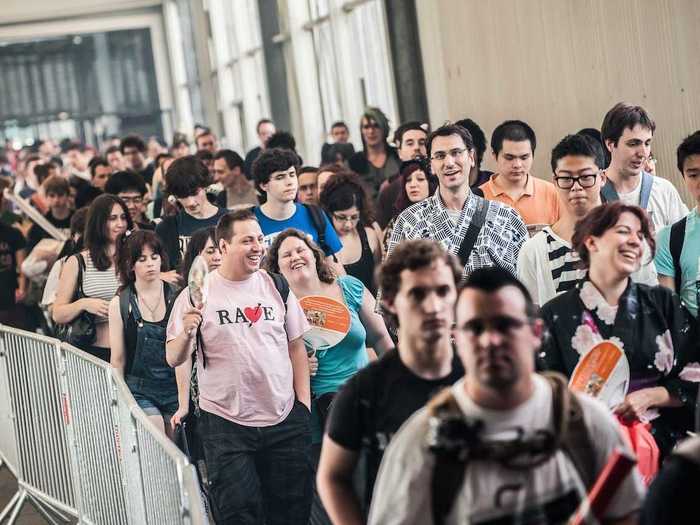
Lines across the country now have 6-foot markers to keep people spaced out while they wait. Lines for grocery stores in cities are snaking around blocks as shoppers attempt to safely distance while they wait to enter reduced-capacity establishments.
When social distancing ends and people are allowed to get together for drinks, tapping your glasses to say "cheers" might be a thing of the past.

Many people around the world have found unique and clever ways to say cheers without getting close to one another. On April 14, The Sun reported that quarantined neighbors in Italy used poles to clink their glasses from their balconies.
Toll booths nationwide have banned cash and opted for touch-free, electronic payment methods.
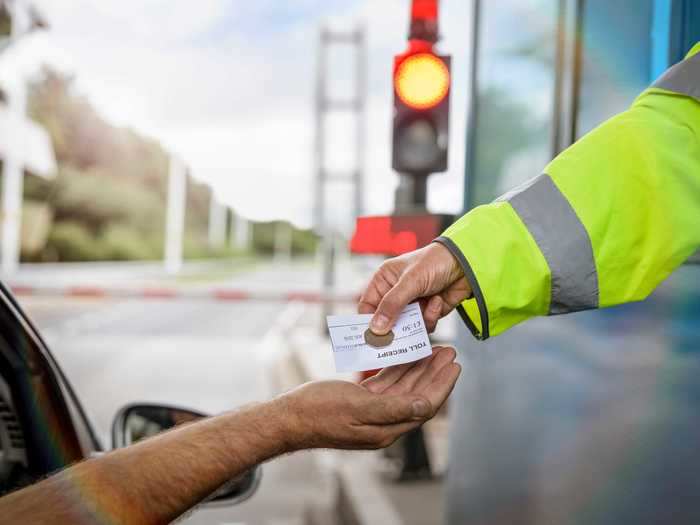
In the first weeks of the pandemic, all toll booths in the New Jersey metro area banned cash. Drivers with E-ZPass, a system of collecting payment electronically, would face no changes, while drivers without it would be billed by mail.
Crowded concerts and mosh pits won't be allowed at any venues while the coronavirus remains a risk to public health.
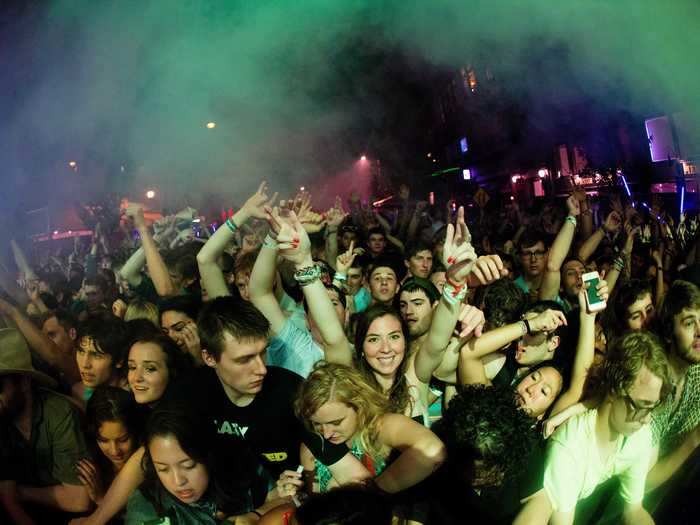
On May 19, Rolling Stone reported "America's first pandemic concert" by blues-rock band Bishop Gunn in Fort Smith, Arkansas. The venue welcomed 200 fans, down from its usual 1,000, and required them to wear masks and sit in assigned seats set up for social distancing. Fans also had temperature checks before they were allowed in, and restroom capacities were limited to 10 people at a time.
Open-floor offices, in which workers sit in close proximity to one another, may not return even after mandated restrictions end.

Albert De Plazaola, global strategy director at design firm Unispace, told the BBC, "We may have lived with the flu for many years, but this is the first time our generation has experienced a pandemic. We're now hyper aware of health risks, whether real or imagined. And employers are hypersensitive about the potential for liability if people get sick at work."
Keychain store club tabs, which are often scanned by store personnel, are another potential way to spread disease.
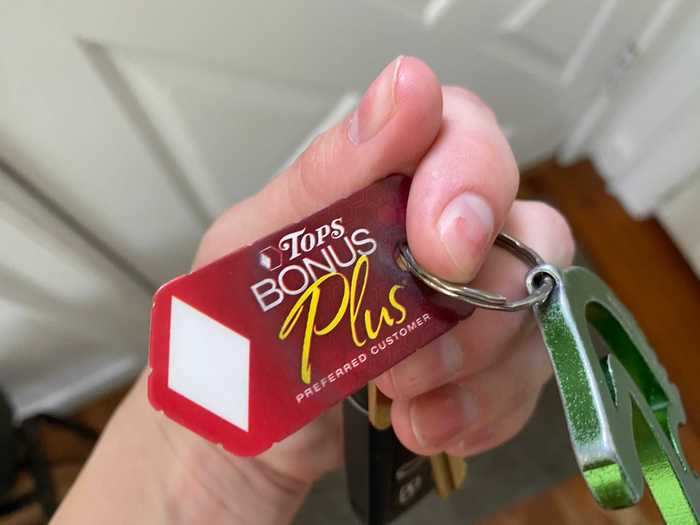
Research on how long the coronavirus can live on surfaces has stated that it can remain on plastic for up to three days.
Though platonic hugging and kissing are an important part of many cultures, they've become ways to spread disease.
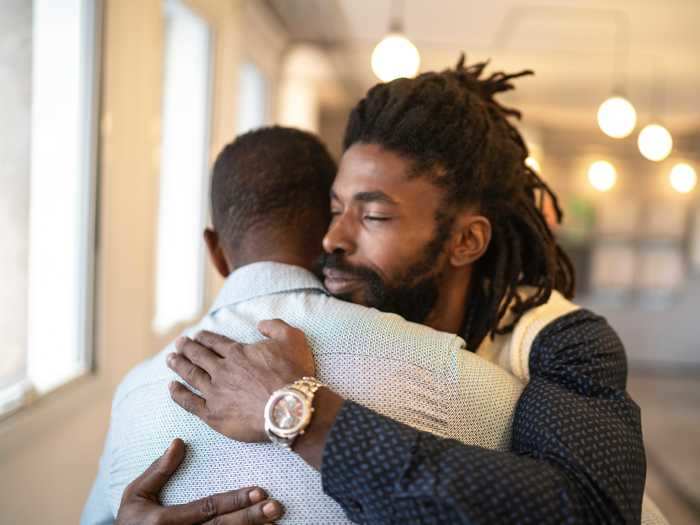
AZ Central reported that after a Latino man gave his infected mother a hug, he came down with the coronavirus, as did many of his other family members who had been hugging and kissing one another.
Rachel Hatzipanagos, from the Washington Post, wrote in an opinion piece, "Shaken by fears over the coronavirus, close-knit Latinx families like mine have been forced to hold back one of the fundamental ways we interact with each other. Physical displays of affection are our love language. But what happens when you have to show your love from six feet away?"
The TSA has advised that travelers no longer put their phones, wallets, and keys in bins, and the change might be permanent.
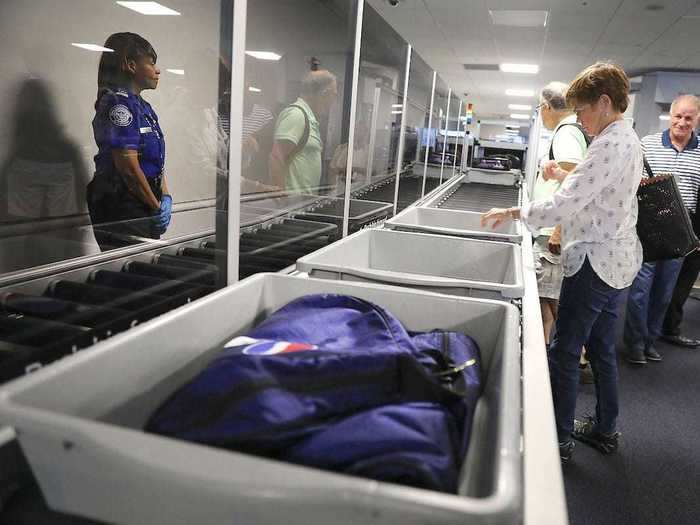
Business Insider reported that TSA is now telling passengers, "Do not place personal items such as wallets, keys or phone in a bin. Instead, secure them in carry-on property to be screened through the X-ray system."
Marketplace reported that changes that promote the health and safety of passengers and workers are likely to be permanent.
Though pay phones were already on their way out, more are likely to become obsolete over safety concerns.
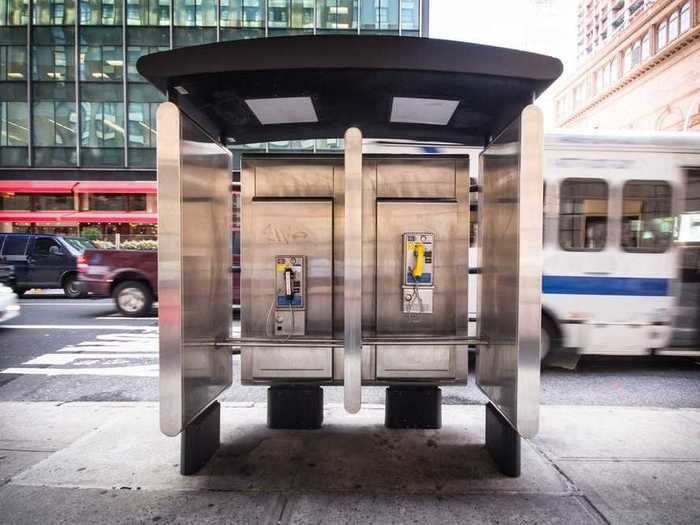
Robyn Gershon, an epidemiology professor at the NYU School of Global Public Health, told The Atlantic, "Doorknobs, coffee makers, toilets, common-use refrigerators, sinks, phones, keyboards [can all] be a source of transmission if contaminated with the agent."
Experts say that water fountains are not safe to use as they put many people's noses and mouths over the same surface.
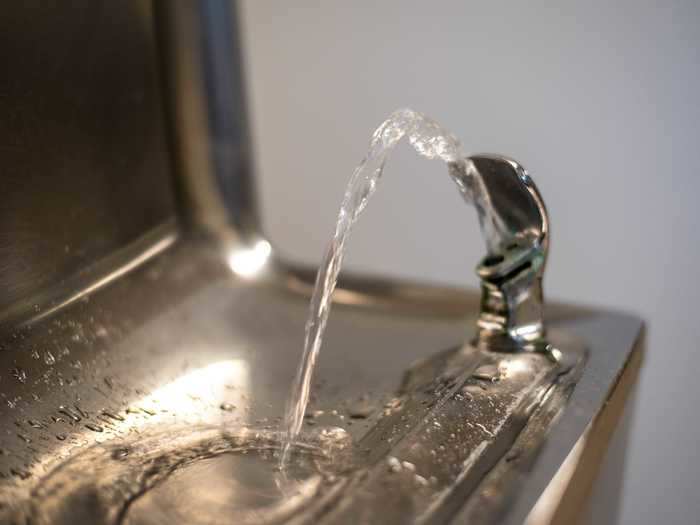
Angela Rasmussen, a virologist with the Center for Infection and Immunity at Columbia University, told The New York Times, "We don't have any data about how long the virus remains infectious on water fountains, but, given their proximity to other people's mouths and noses, I would say you should not."
A cashless society could become more likely after the pandemic.
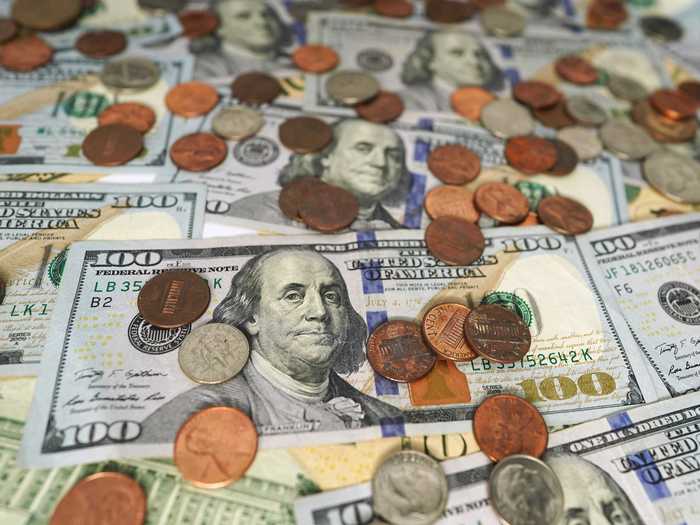
Though getting rid of cash may help stop the spread of disease, it comes with more than a few trade-offs. Older Americans who are less likely to be tech-savvy, and Americans who may not have bank accounts or cards, will suffer.
Vallie Brown, a cash advocate and former Democratic member of San Francisco's Board of Supervisors, told Politico, "Even in this pandemic crisis, we have the same vulnerable people we had before that did not have access to banks or credit cards."
The CDC recommended that doctors switch to telemedicine for routine and elective visits to preserve PPE.
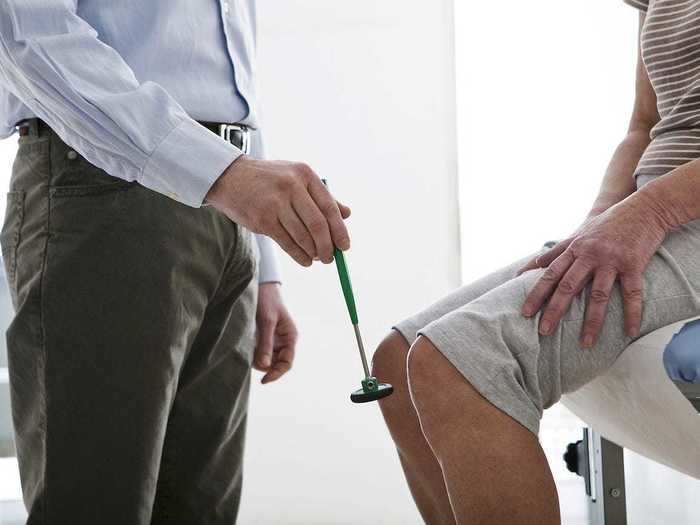
Many doctors' offices that did not see patients virtually have started doing so during the pandemic, and are likely to keep it as an option in the future.
Though in some cases telemedicine can be a more convenient and efficient option, patients should reach out to their primary care provider when in doubt.
Business travel is likely to be greatly reduced amid safety concerns and the increase in virtual meetings.
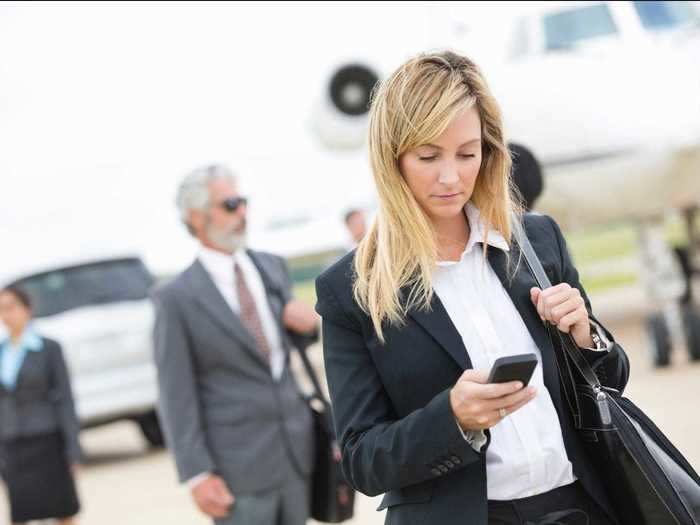
Henry Harteveldt, founder of Atmosphere Research Group, a travel analysis firm in San Francisco, told The New York Times, "Business travel won't come back before we hear from public health officials that it's safe to travel."
On April 22, Business Insider reported that Zoom had reached 300 million daily meeting participants.
- Read more:
- 18 critical things we've learned about the coronavirus since the earliest reported cases in China
- France recorded 70 new coronavirus cases in schools, a week after it let more than 1 million kids go back to class
- Photos from across the US show what the new normal looks like as states reopen — from temperature scanners at the Apple store to marked circles at public parks
READ MORE ARTICLES ON
Popular Right Now
Popular Keywords
Advertisement